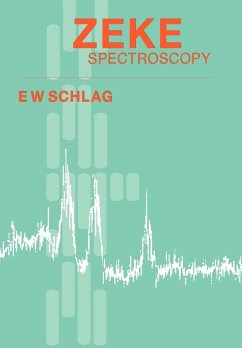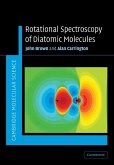The first book to describe ZEKE (ZEro Kinetic Energy) spectroscopy, a chemistry technique of increasing importance.
This is the first book to describe ZEKE (Zero Kinetic Energy) spectroscopy, a new high resolution spectroscopy of molecular ions, neutral short-lived intermediates, and other species. The author's approach is to use a minimum of equations with large numbers of figures to help the reader towards a basic understanding of the many unique concepts of this new form of spectroscopy. Since 1984 ZEKE spectroscopy has matured into a very high resolution spectroscopy for the study of cations, anions and, indirectly through these species, of neutrals, including very short-lived intermediates in chemical reactions. It has even yielded the first direct spectroscopic data on elusive transition states of chemical reactions. This book will be of interest to anyone interested in the spectroscopy of ions or neutrals, particularly short-lived neutrals, and to reaction kineticists interested in the study of reactions involving such highly state-selected species.
Table of content:
1. Foreword; Part I: 2. Introduction; 3. Spectroscopy - a historical perspective; 4. Mass analysis; 5. Photoelectron spectroscopy; 6. Threshold spectroscopy; 7. Zero kinetic energy (ZEKE) spectroscopy - an introduction; 8. Threshold ion detection; 9. Basic application; 10. Specific examples of ZEKE spectra in brief; Part II: 11. Historical perspectives and principles; 12. Delayed ionization; 13. Mechanism; 14. Ionization potentials for ZEKE spectra; 15. Ion detection in ZEKE spectra; 16. High resolution - benzene; 17. Magnetic field effects; 18. Anion and neutral mass selected spectra; 19. Short lived states; 20. Applications - state selection; 21. Channel interactions and selection rules; 22. Mixing of states by fields; 23. Field effects on the ionization potential; 24. Intensity effects due to electric fields; 25. Examples of systems studied; 26. Lifetimes of ZEKE states at energies above the ionization potential; 27. Concentration effects on ZEKE spectra; 28. Summary; 29. Epilogue; 30. List of acronyms; 31. ZEKE bibliography.
Hinweis: Dieser Artikel kann nur an eine deutsche Lieferadresse ausgeliefert werden.
This is the first book to describe ZEKE (Zero Kinetic Energy) spectroscopy, a new high resolution spectroscopy of molecular ions, neutral short-lived intermediates, and other species. The author's approach is to use a minimum of equations with large numbers of figures to help the reader towards a basic understanding of the many unique concepts of this new form of spectroscopy. Since 1984 ZEKE spectroscopy has matured into a very high resolution spectroscopy for the study of cations, anions and, indirectly through these species, of neutrals, including very short-lived intermediates in chemical reactions. It has even yielded the first direct spectroscopic data on elusive transition states of chemical reactions. This book will be of interest to anyone interested in the spectroscopy of ions or neutrals, particularly short-lived neutrals, and to reaction kineticists interested in the study of reactions involving such highly state-selected species.
Table of content:
1. Foreword; Part I: 2. Introduction; 3. Spectroscopy - a historical perspective; 4. Mass analysis; 5. Photoelectron spectroscopy; 6. Threshold spectroscopy; 7. Zero kinetic energy (ZEKE) spectroscopy - an introduction; 8. Threshold ion detection; 9. Basic application; 10. Specific examples of ZEKE spectra in brief; Part II: 11. Historical perspectives and principles; 12. Delayed ionization; 13. Mechanism; 14. Ionization potentials for ZEKE spectra; 15. Ion detection in ZEKE spectra; 16. High resolution - benzene; 17. Magnetic field effects; 18. Anion and neutral mass selected spectra; 19. Short lived states; 20. Applications - state selection; 21. Channel interactions and selection rules; 22. Mixing of states by fields; 23. Field effects on the ionization potential; 24. Intensity effects due to electric fields; 25. Examples of systems studied; 26. Lifetimes of ZEKE states at energies above the ionization potential; 27. Concentration effects on ZEKE spectra; 28. Summary; 29. Epilogue; 30. List of acronyms; 31. ZEKE bibliography.
Hinweis: Dieser Artikel kann nur an eine deutsche Lieferadresse ausgeliefert werden.








